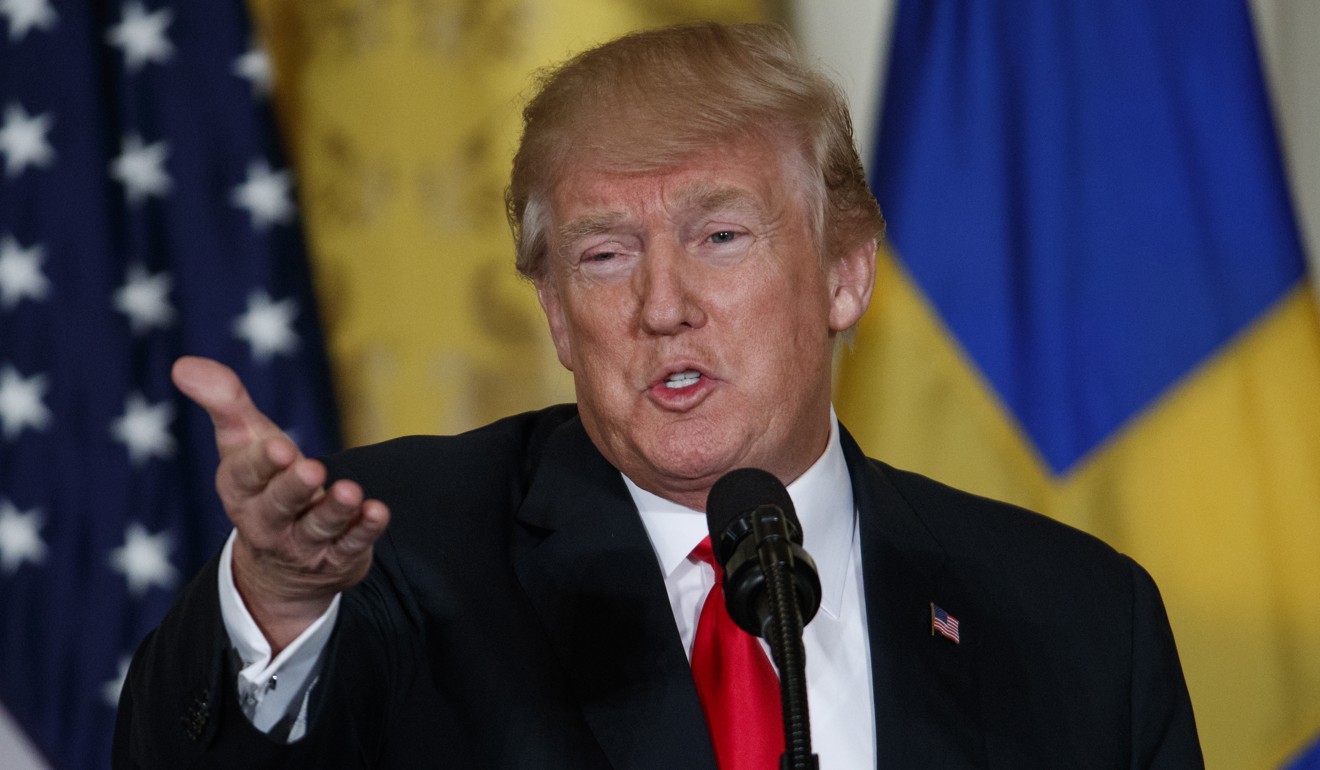
Starting a trade war is ‘wrong remedy’ for disputes, China tells US
Foreign Minister Wang Yi calls for world’s two biggest economies to ‘take responsibility for their people and the world’
China hit out at the United States for using the “wrong remedy” to tackle trade disputes and vowed to take action to defend its interests, with US President Donald Trump expected to approve stiff tariffs on steel and aluminium imports this week.
Foreign Minister Wang Yi made the remarks on Thursday as China’s latest data showed its trade surplus with the US reached US$42.9 billion in the first two months, up 35 per cent from a year ago. The surplus narrowed slightly to US$20.9 billion in February – from US$21.8 billion in January.
Trade tensions have jumped to the top of the priority list for China this year, with the proposed US tariffs suggesting there may be more measures on the way.
Beijing sent two envoys – State Councillor Yang Jiechi and President Xi Jinping’s most trusted economic adviser Liu He – to Washington last month in a bid to de-escalate the situation, but they were unsuccessful. Even before his trip, Liu’s delegation was downsized from 40 to 10 after the US raised an objection.
“Especially given today’s globalisation, choosing a trade war is the wrong remedy. The outcome will only be harmful to others and the initiator. China would have to make a justified and necessary response,” Wang said on the sidelines of the National People’s Congress, the legislature, in Beijing.
He said starting a trade war had never been the correct way to resolve problems and called for calm and talks on an equal basis.
“As two big countries whose interests are highly intertwined, and as the world’s two biggest economies, China and the United States should take responsibility for their people and the world as well,” Wang said.
“We still hope that both countries can sit down, peacefully and calmly, to find a mutually beneficial and win-win solution through equal and constructive conversation.”

The US president is expected to approve the punitive tariffs on Friday. In a tweet on Wednesday, Trump said: “China has been asked to develop a plan for the year of a one billion dollar reduction in their massive trade deficit with the United States.
“Our relationship with China has been a very good one, and we look forward to seeing what ideas they come back with. We must act soon!”
The plan to impose tariffs of 25 per cent on imported steel and 10 per cent on aluminium has drawn a global backlash, especially from US allies such as Canada, which supplies about 41 per cent of steel imports to the US.
The White House has said Mexico, Canada and other countries may be spared from the planned tariffs under national security “carve-outs”, a move that could soften the blow amid threats of retaliation by trading partners and dire economic warnings from US lawmakers and business groups.
China only accounts for about 3 per cent of steel imports into the US, but critics fear the Trump administration may go ahead with further trade actions targeting China, amid US government allegations of unfair trading practices.
On Wednesday, China led a group of 18 members at the World Trade Organisation urging Trump to scrap the tariff plan, with its representative saying the levies would pose a systemic threat to the rules-based global trading system.
Meanwhile, sources and diplomatic observers said China had been unable to find a point person in the Trump administration to handle talks as the prospect of a trade war loomed, and chaos within the White House team had added to the difficulties.

